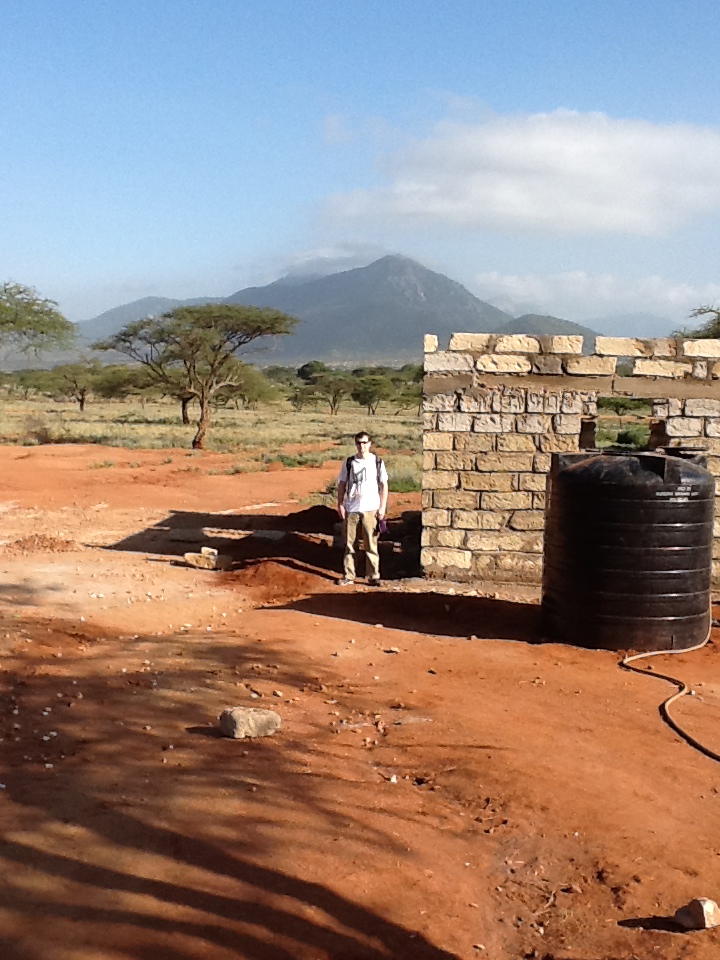Kyle Novak doesn’t say much but when he talks he usually has thought deeply about what he is going to say. He exhibited some hidden talents on this trip. Kyle always found food and was able to do some very good “haggling” in the local markets. He was able to get me out of several jams with my computer. He is not very good at milking camels however (more on that later). He has some insights into Kenya and what we are trying to do there that are really quite, well, insightful. It is obvious that he did some studying. Here they are………
I’m writing from the Schipollounge here in Amsterdam and the local time is 0713, which means I’ve been awake for over 24 hours and in that time have travelled over 4000 miles from an origin of Mombasa Kenya. Ahead of me is another 4000+ mile flight to MSPwhich will be followed by a six hour drive home to Grafton. In addition to the inherent exhaustion that accompanies travel I’m also feeling what I like to think of as the Red River Valley blues–that promise of an impending return to work, school, cold, monotony, and a complete lack of terrain in northeast North Dakota. Sure, I’ll get used to it all in no time, but right now, after what has been the most amazing adventure of my life, it’s nothing but depressing…and yet, despite my pessimistic attitude toward the next few days, I also feel a great sense of optimism for the future of Kenya.
This was my first time over seas and my first real experience of the third world (I spent 3 hours in Tijuana when I was 8) so I wasn’t sure what to expect. I thought that perhaps the entire country would be trapped in a state of perpetual poverty and suffering and that the church’s efforts there would perhaps be able to, at best, alleviate a small portion of that suffering. While the poverty and some of the ways of life there were almost inconceivable, I was, for the most part, pleasantly surprisedby the country. Kenya is in a transition period between the third and the first world, and in many ways the two overlap. One of the most fascinating things to see is a person who lives in a dirt hut, herding goats on the side of the road, and suddenly pulling out a cell phone to make a call. Along with this, of course, is the less amusing sight of luxurious buildings popping up only to be surrounded by shanty towns. Such things are inevitable, but the vast majority of Kenyans seem to be working to make them better. And things do seem to be getting better. GDP grew by 7% in 2007 with expected growth to be above 5% per year. 12% of residents have internet access, up from 2% a few years ago. The middle class is expanding, tourism is growing rapidly, and roads are being paved around the country. It is also common to see numerous schools with mottos and mission statements promising prosperity and a brighter future. Here is where I think the value of project 24 lies. By providing these rescue centers and schools, the church isn’t just putting bread in people mouths for a day, we’re setting people up for self sufficienyand lifetime success. The impact of an education not only helps an individual, but all those around them and project 24 is making this possible. I believe that every dollar invested in this project has the potential to grow exponentially in years to come. The effects will not be felt just in Kenya, but in surrounding countries, as there is already talk of expanding the project to Sudan. It seems that great things are possible for everyone with the enterprising spirit of the Kenyan people and the help of LCMSand project 24.
Kyle Novak



I am impressed with Kyle’s insight. Roger often talks the same about Kenya. I am glad he has had this opportinity.